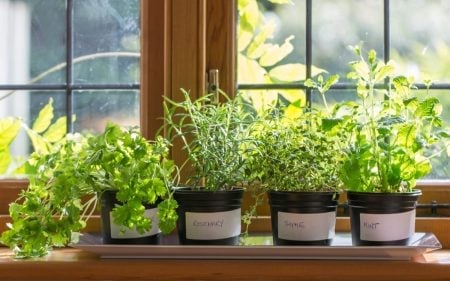Living a sustainable lifestyle is increasingly important in today’s world, as we face the challenges of climate change and environmental degradation. While large-scale changes are necessary, we must also recognise the significance of individual actions.
One of the most impactful places to start is right at home. By making conscious choices and adopting sustainable practices within our households, we can contribute to a greener future.
Knowing where to begin can be a little overwhelming. So we’ve put together a few simple tips to help you on your journey towards a more sustainable lifestyle.
7 Ways to Be More Sustainable at Home
1. Use eco friendly appliances
Opting for eco-friendly appliances is an excellent way to begin minimising your environmental footprint and potentially lower your heating expenses. Household appliances consume a significant amount of energy and resources. By choosing energy-efficient and environmentally friendly options, you can make a positive impact. Look out for the following features:
- Energy efficiency ratings. Appliances in the UK bear an energy efficiency rating from A+++ (most efficient) to D (least efficient). When purchasing appliances, opt for those with higher energy efficiency ratings, such as A+ or A++.
- Eco-labels and Certifications. Look for eco-labels such as the Energy Saving Trust Recommended logo or the EU Energy Label. These labels indicate that the appliance meets stringent energy efficiency standards and contribute to reducing environmental impact.
- Smart Features. Consider appliances with smart features that optimise energy usage. For example, smart thermostats can learn your heating patterns and adjust accordingly, helping you save energy and reduce emissions.
- Low Water Consumption. Choose appliances, such as washing machines and dishwashers, that have water-saving features. Look for models with low water consumption per cycle or those that offer adjustable settings to match your needs.
When it comes to heating oil, there are several highly efficient boiler options available on the market. But the most efficient oil boiler for home heating will depend on various factors. These factors include: your specific heating needs, the size of your home, and your budget.
Read our guide to the best oil central heating boilers for your home.
2. Opt for efficient home heating oil
If your home relies on oil-fired heating for warmth, explore ways to improve your heating systems efficiency. One alternative to consider is premium kerosene. With its cleaner burning properties and reduced impurities, premium kerosene offers several benefits that can optimise your boiler’s performance. These benefits lead to potential fuel savings and a more environmentally friendly heating solution.
Explore the difference between kerosene and premium kerosene.
3. Conserve energy whenever possible
Reducing energy consumption not only benefits the environment but also offers financial savings. There are several effective ways to enhance energy efficiency within your home, including:
- Switching to LED light bulbs. LED bulbs are highly energy-efficient and boast a longer lifespan compared to traditional incandescent bulbs. By consuming significantly less electricity, LED light bulbs can lead to substantial energy savings.
- Unplugging electronics when they are not in use. Many devices draw power even in standby mode. Unplugging devices or using power strips with on/off switches can prevent unnecessary energy consumption and contribute to reduced electricity usage.
- Optimising heating and cooling. Adjust your thermostat based on the season, lowering it during winter and raising it during summer.
- Make the most of natural ventilation. You can do so by opening windows and using ceiling fans to regulate indoor temperature more efficiently.
4. Plant a herb garden
Instead of relying on store-bought herbs, why not embrace the joy of growing your own herb garden? Whether you have a small outdoor space or a sunny kitchen windowsill, cultivating an herb garden offers numerous benefits. A herb garden reduces food miles and provides convenient access to fresh herbs whenever needed.
By growing your own herbs, you eliminate the need to make frequent trips to the supermarket, saving both time and fuel. Imagine the satisfaction of plucking fresh basil, mint, or rosemary straight from your garden while cooking up a delicious feast. The flavours and aromas of freshly harvested herbs can elevate your culinary creations to new heights.
5. Avoid single-use plastic
Traditional plastics pose a significant challenge to our environment due to their non-biodegradable nature. It’s alarming that the plastic items we currently have in our cupboards could persist in the environment for over 500 years. Just imagine that mountain of plastic containers stashed away, slowly accumulating in landfills and potentially polluting our ecosystems.
When the time comes to replace your plastic items, it’s essential to make informed choices. Checking labels and opting for biodegradable alternatives can have a profound impact on reducing plastic waste. Biodegradable options serve the same purpose as traditional plastics while naturally decomposing over time, causing minimal environmental harm.
One great alternative to plastic containers is tempered glass. Glass containers are durable, long-lasting, and offer a host of benefits. Unlike plastic, glass is non-toxic and does not leach harmful chemicals into your food or drinks. Glass preserves the integrity and flavours of your stored items, making it an ideal choice for food storage.
6. Shop at your local independent shops
This is a great option to help you live in a more sustainable way. Not only are you helping your local community to thrive, but local shopping can also reduce your food miles. Many local farms deliver fresh fruit and vegetable boxes filled with delicious seasonal produce to your doorstep.
Additionally, keep an eye out for zero-waste shops which have become very popular over the last few years. These shops use minimal packaging and encourage customers to use personal containers, making them a great starting point for sustainability.
Explore our top tips to reduce food waste at home.
7. Repair and recycle
You can cut waste by repairing, rather than replacing. Designers have developed many products to make it cheaper to replace them when they break. This, in turn, creates mountains of landfill every year.
If you’re looking for a way to live more sustainably, try your hand at mending broken items, clothes, or shoes. Alternatively, you can take your items to your local repair shop to fix instead. Also consider donating unwanted items to local upcycling projects, vintage stores or charities. This is a great way to bring your items back to life for someone else to enjoy.
There’s plenty more things you can do to live more sustainably and do your bit for the environment. But hopefully we’ve given you a few tips to take the first steps towards helping to make a difference.
TAKE CONTROL OF YOUR FLEETS FUEL
Ready to start fuelling your business' success?
Steamline your fleet operations, control costs, and experience the benefits of Certas Energy Fuel Cards. Get in touch to start saving today.




